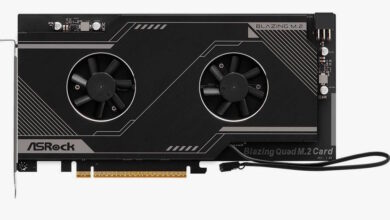
ARM has passed its stake in its subsidiary in Chinawho has declared himself in absentia, to an independent entity. This way you will still be able to collect the fees that ARM’s Chinese client companies pay you, but you will not need to show the accounting of ARM China, created in 2016 under the name of Anmou Technologies but the one everyone calls ARM China, the potential investors they might have when ARM goes public, which Tom’s Hardware says is set to happen in 2023.
The company has confirmed that it has transferred its holdings in ARM China to a new entity solely for accounting reasons. In this way, ARM can declare its holdings in its Chinese subsidiary as an investment, rather than treating it as a joint venture. Therefore, ARM China will continue to distribute the company’s intellectual property in China, and the parent company will continue to collect fees from the use of this intellectual property by Chinese client companies. Of course, it will not have to present the financial results of ARM China to regulators, and neither to investors that it has in the future.
The long-standing controversy between the parent company and its subsidiary in China is thus resolved, at least for the moment, although it may not have completely ended and there will be more episodes in the future. The Chinese subsidiary contributes a quarter of its total revenue to the company, but is not wholly owned by the company. It is actually a joint venture between ARM, which is currently controlled by SoftBank, and a consortium of Chinese investment funds.
The company currently has control of 47.33% of the shares of its Chinese subsidiary, and the rest is held by these funds. Of these, Hopu Investment, of China Investment Corp, has the most: 36%. Also, there are several investment funds with shares of the subsidiary china company controlled by Allen Wu, CEO of ARM China and a huge source of headaches for the company for quite some time, and one of the causes of the problems between parent and subsidiary.
Ala company’s problems with ARM China began a few years ago. In 2019 ARM discovered that Allen Wu was taking advantage of his position at ARM China to get investors for his fund, Alphatecture, dedicated to investing in technology-related startups. In 2020, the company’s board of directors, already with this information in their possession, met to vote on whether or not to fire him.
They finally agreed to fire him due to a conflict of interest, but Wu did not think it appropriate and decided to continue in his position, which he has been able to do until now because he has certain rights over the company, which according to the laws in force in China mean that he can take the decisions that seem to him even if the board of directors of the company does not agree. That is why he not only remains its CEO, but has also been completely free for a long time with ARM China, as if he had split from the parent company.
Wu claims that ARM’s Chinese subsidiary is under Chinese control, and has been promoting Anmou Technologies’ services, and even its own intellectual property, for some time now. This has ruined Softbank’s strategy for the country, and triggered a spiral of lawsuits that will take years to resolve. In the meantime, ARM China has even launched its own brand of chips and services: Core Power, and they send their press releases under their official Chinese name, which as we have mentioned is Anmou Technologies. Therefore, they have been seeking to differentiate themselves completely for quite some time.
All these problems have also made Allen Wu refuse to share ARM China’s financial results with the parent, and the parent cannot fire him. So the parent company cannot show its results to investors and shareholders, which blocked its IPO, scheduled if all goes well for March 2023, in just under a year. In order to go public, ARM needs to complete its financial review between June and September, which was impossible if ARM China did not share its financial results.
With this decision they have made, their accounting problems to go public. But there may be another problem, because it is unclear if the transfer has been approved by Allen Wu, which still has in its possession the quality seal of ARM China, necessary to carry out the transaction. ARM is a UK-based company, which means you can transfer your assets however you like. But Chinese law may not agree, so the latest episode in the battle between ARM and its Chinese subsidiary may not be the end.



